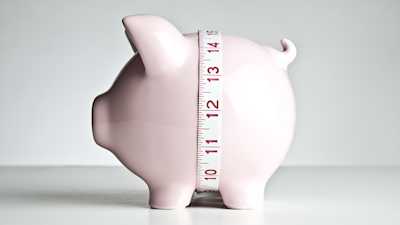Off-farm investing: A long-term strategy

Long-term, off-farm investment strategies can turn [your] plans into reality.
There are hundreds of ways to spend money on the farm, from investing in new technology to painting the shop. Farms are long-term businesses, and reinvesting profits keeps them productive. But off-farm investments are also important.
“Taking money out of a farm corporation and investing off-farm is a perfect strategy for building your farm transition plan,” says Lance Stockbrugger, CPA CA and a Saskatchewan farmer. Stockbrugger recommends taking a disciplined, long-term approach to off-farm investments.
Investing in good times
Farm income can vary more than the weather. There may not be excess cash for off-farm investments every year, but Stockbrugger says, “There are years when you can make up some ground.” In those years, farm owners can take cash out of the farm by paying themselves higher-than-usual dividends or salaries.
The best use of this cash is paying down loans for non-farm assets like houses or vacation properties, especially when higher interest rates make them more expensive. Stockbrugger advises paying down this non-tax-deductible debt before putting any money in the stock market or an investment portfolio.
The next step is to maximize contributions to a tax-free savings account or TFSA. Cash invested in the stock market, guaranteed investment certificates (GICs), or other financial products through tax-free savings accounts will grow, tax-free, for later use. RRSPs may be right for you but check with an advisor to be sure. Many farmers are better off paying income tax now than using RRSPs to defer taxes until retirement, when they could be in a higher tax bracket.
An investment advisor can find specific investments that work for you, but Stockbrugger suggests adding diversification away from agriculture. “If agriculture is having a tough time, companies profiting from agriculture will likely also be having a tough time,” he says.
Tax planning in hard times
The difficult part of a disciplined, long-term approach is sticking with it when profits are down. “Some years, the cash just isn’t available,” Stockbrugger says. But even then, you can still build up a tax-paid account within the farm business.
When there’s limited cash available in the corporation, this is where owners can pay themselves dividends or salaries above what they need for personal spending without taking the excess cash out of the farm operation. “The hard pill to swallow is paying high personal taxes in those years when you don’t have the cash flow,” Stockbrugger says. This tax-paid cash can be kept in the farm corporation, building up the shareholders’ loan. In later years, this cash can be withdrawn with no further tax consequences.
Building the future
Every farm has a unique transition plan, but almost all of these plans include exit strategies for aging farmers or financial gifts to non-farming children. Long-term, off-farm investment strategies can turn these plans into reality.
From an AgriSuccess article as told to Leeann Minogue.

How adding savings plans from outside your farm operation can help smooth the retirement saving process.
